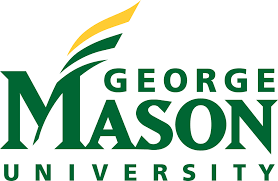George Mason University: Fast Grants to aid in the development of a pan-coronavirus vaccine
George Mason University’s Fast Grants program continues to play a leading role in the global pandemic by expediting critical research needed in the fight against COVID-19.
The philanthropic effort, which is part of the Emergent Ventures program for innovators based within Mason’s Mercatus Center, recently received nearly $7 million from generous benefactors, most of whom have chosen to remain anonymous. As a result, the Fast Grants Program was able to quickly send out nearly $4 million in support of pan-coronavirus vaccine research at the University of Washington and at the California Institute of Technology in the hopes of soon developing a vaccine that can offer protection against every strain of the virus.
“The necessity to fight back against COVID is obvious,” said Tyler Cowen, a professor of economics within Mason’s College of Humanities and Social Sciences and the faculty director of the Mercatus Center. “We are supporting research into vaccines that will—if they succeed—work against all variants to come in the future. And Fast Grants has had a good track record supporting quality research against COVID, and in a timely manner. The researchers have some initial promising results. Now they can get started on the next steps right away.”
Cowen, who founded Emergent Ventures, announced the start of the Fast Grants program in March 2020 in the hopes of inspiring immediate breakthroughs in the fight against the deadly virus that has now claimed more than 5.2 million lives around the globe, including nearly 800,000 Americans, according to the World Health Organization.
Donors soon began coming forward to aid in the efforts, including Telsa’s Elon Musk, LinkedIn co-founder Reid Hoffman and philanthropist MacKenzie Scott, among others.
Launched with a $1 million grant from the Thiel Foundation, Emergent Ventures Fast Grants range between $10,000 and $500,000. Decisions on funding typically are made within 14 days of requests and are quickly dispersed to recipients.
To date, the Fast Grants program has distributed more than $54 million in more than 200 grants, including several for potential vaccines and treatments for the virus.
“I am hoping this work can save lives,” Cowen said, “and restore our economy to normal operation more rapidly. Perhaps it also will be the basis of future advances in medical sciences, directed at other problems as well.”

